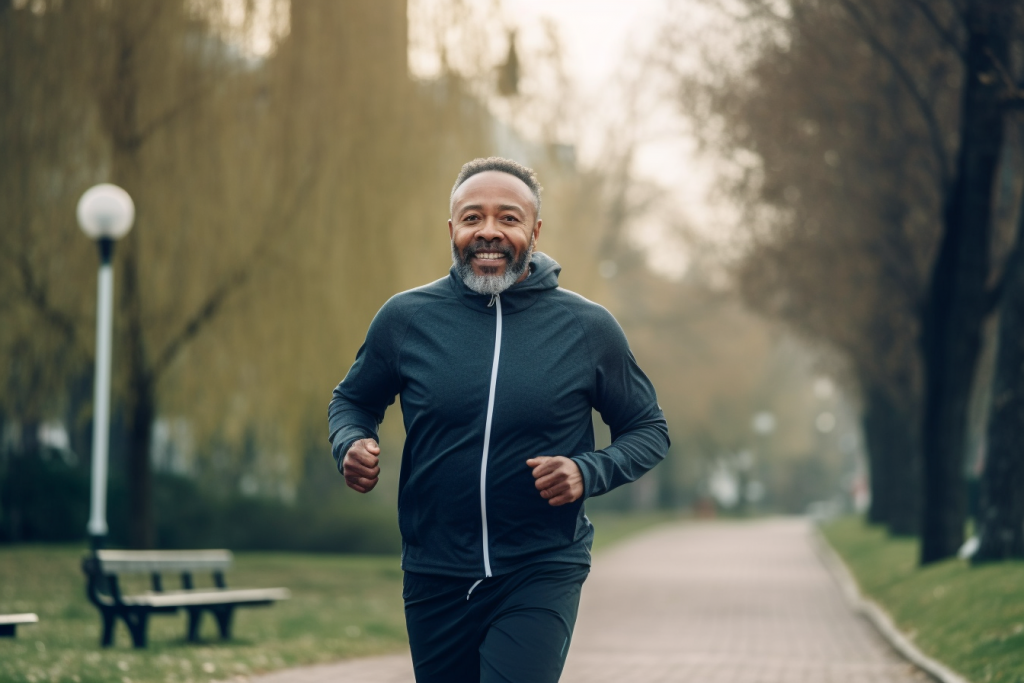The process of aging is an inevitable aspect of life that affects everyone. As individuals age, they are likely to experience a variety of health-related issues and concerns, such as wrinkles, fatigue, and decreased mobility.
However, recent advancements in medical treatments have provided a promising avenue for reversing or slowing down the effects of aging.
Passaic’s roadmap to reversing the effects of aging through cutting-edge treatments is a comprehensive approach that incorporates various medical techniques and procedures to enhance overall health and wellness. This roadmap is designed to provide individuals with practical solutions to manage the physical manifestations of aging while promoting longevity and vitality.
Through this article, we will explore some of the latest treatments available within Passaic’s roadmap, highlighting their effectiveness in reversing the effects of aging.
Nutritional Support For Anti-Aging
Nutritional support is an important factor in anti-aging efforts. Supplement recommendations can provide the necessary vitamins, minerals, and antioxidants that the body needs to fight against the effects of aging.
Taking supplements such as vitamin C, vitamin E, and omega-3 fatty acids can help reduce inflammation, which has been linked to age-related diseases like Alzheimer’s disease and cancer.
Dietary restrictions are also crucial in anti-aging efforts. Limiting sugar intake has been shown to reduce inflammation and improve cognitive function. Additionally, reducing calorie intake through intermittent fasting or a calorie-restricted diet has been linked to increased lifespan and improved healthspan.
Eating a diet rich in fruits, vegetables, whole grains, lean proteins, and healthy fats can also provide essential nutrients for optimal health.
Incorporating proper nutritional support into one’s lifestyle can aid in reversing the effects of aging. Making supplement recommendations and following dietary restrictions have been shown to improve overall health and well-being.
By implementing these changes in conjunction with other cutting-edge treatments, individuals may be able to slow down or even reverse the negative effects of aging on their bodies.
Hormone Replacement Therapy
Hormone Replacement Therapy (HRT) is an increasingly popular treatment for reversing the effects of aging.
Studies have indicated that it may offer a variety of benefits, such as improved metabolism, increased energy levels, and enhanced mental clarity.
However, it is important to note that there are potential risks associated with HRT, including increased risk of heart attack, stroke, and some types of cancer.
There are several types of HRT available, including synthetic hormones, bioidentical hormones, and natural supplements.
It is recommended that individuals consult a medical professional before pursuing any type of HRT.
Benefits Of Hrt
Hormone Replacement Therapy (HRT) has been gaining popularity as a treatment to reverse the effects of aging. One of its most significant benefits is its ability to reduce the long-term effects of aging on the body.
This therapy helps maintain hormone levels that decrease with age, such as estrogen and testosterone, which are essential for keeping bones strong, maintaining muscle mass, and promoting cognitive function.
Dosage optimization is critical when it comes to HRT. To maximize the benefits of this therapy, health practitioners must tailor the dosage to individual needs. The goal is to achieve optimal hormone levels without causing any adverse effects.
With proper dosage management, patients can receive the full range of benefits from HRT while minimizing any potential risks.
In summary, HRT offers numerous benefits for those seeking ways to combat aging. Its long-term effects include increased bone density, muscle mass retention, improved mental clarity and decreased risk of heart disease.
However, it’s important for individuals undergoing this therapy to work closely with their healthcare provider in optimizing dosages for maximum benefit while minimizing risks.
Risks Of Hrt
Despite the numerous benefits of Hormone Replacement Therapy (HRT), it is not without risks. Long-term implications of HRT include an increased risk of breast cancer, blood clots, and stroke. Thus, it is crucial for individuals considering HRT to discuss the potential risks with their healthcare provider before starting treatment.
It is important to note that there are alternatives to HRT, such as lifestyle changes and non-hormonal therapies. Lifestyle changes like regular exercise and a healthy diet can help improve overall health and reduce the impact of aging on the body. Non-hormonal therapies like selective serotonin reuptake inhibitors (SSRIs) can also be effective in treating symptoms like hot flashes and mood swings.
While HRT may be effective in reducing the long-term effects of aging on the body, careful consideration should be given to its potential risks. There are alternatives available that can provide similar benefits without the associated risks. Ultimately, it is up to individuals to weigh the pros and cons with their healthcare provider and make an informed decision regarding their treatment options.
Types Of Hrt
Moving forward, it is important to discuss the different types of Hormone Replacement Therapy (HRT) available.
There are several options for HRT treatment, including estrogen-only therapy and combination therapy with both estrogen and progesterone.
Estrogen-only therapy is typically recommended for women who have had a hysterectomy, as they no longer need progesterone to protect the uterus from endometrial cancer.
Combination therapy is recommended for women who still have their uterus.
Each type of HRT has its own set of benefits and risks.
For example, estrogen-only therapy has been shown to reduce the risk of osteoporosis, while combination therapy has been linked to an increased risk of breast cancer.
When considering HRT options, it is important to weigh these potential benefits and risks with a healthcare provider.
Another factor that individuals may consider when choosing between different types of HRT is cost.
Some types of HRT may be more expensive than others, depending on factors like dosage and frequency of treatment.
It is important to discuss cost comparison with a healthcare provider when making a decision about HRT treatment options.
Ultimately, the choice between different types of HRT will depend on individual factors such as medical history, personal preferences, and financial situation.
Stem Cell Therapy
Hormone replacement therapy (HRT) has been a widely used treatment for reversing some of the effects of aging. However, as research in this field continues to advance, there are emerging alternatives to HRT, such as stem cell therapy.
Stem cells are unique cells that have the ability to differentiate into various types of specialized cells in the body. Stem cell therapy involves the use of undifferentiated cells that can be found in various parts of the body or harvested from external sources like cord blood or bone marrow. These cells can then be manipulated and stimulated to differentiate into specific types of cells, such as skin or muscle cells.
The potential benefits of stem cell therapy for anti-aging treatments are vast, including tissue regeneration and improved organ function. Four potential benefits of stem cell therapy are tissue regeneration, improved organ function, reversal of age-related damage, and increased longevity.
While stem cell therapy holds promising potential benefits, there are also potential risks and ethical considerations that need to be addressed. The use of embryonic stem cells is highly controversial due to its association with ethical concerns surrounding fetal tissue research. Additionally, there is a risk for complications such as infection or tumor formation when using adult stem cells. Therefore, thorough screening and regulation must be implemented to ensure safe and ethical practices.
In summary, while hormone replacement therapy has been a popular treatment for anti-aging in the past, advancements in research have introduced new alternatives like stem cell therapy. Stem cell therapy holds great promise for tissue regeneration, improving organ function, and reversing age-related damage; however, it is important to address potential risks and ethical considerations associated with its use before widespread implementation can occur. Thorough evaluation and regulation must be established before this technology can become a standard part of anti-aging treatments.
Skin Rejuvenation Treatments
As we age, the skin’s natural ability to produce collagen decreases, leading to wrinkles, fine lines, and sagging skin. Skin rejuvenation treatments aim to reverse these effects by stimulating collagen production and improving the overall texture and appearance of the skin.
One of the most popular methods of achieving this is through laser resurfacing. Laser resurfacing involves using a laser to remove damaged outer layers of skin, allowing new, healthy skin cells to grow in their place. The heat from the laser also stimulates collagen production, which helps to tighten and firm the skin. This treatment can be used to reduce the appearance of wrinkles, scars, and sun damage on the face and body.
In addition to laser resurfacing, there are other methods that can be used to boost collagen production and improve skin health. These include chemical peels, microdermabrasion, and microneedling.
It’s important to consult with a qualified dermatologist or aesthetician before undergoing any skin rejuvenation treatments to determine which method is best for your individual needs. With proper care and maintenance, these treatments can provide long-lasting results in reversing the effects of aging on the skin.
Exercise And Physical Therapy
Resistance training and balance exercises are crucial components of any exercise program aimed at reversing the effects of aging.
Resistance training, also known as strength training, involves performing exercises that work against resistance. This type of exercise helps to build muscle mass, increase bone density, and improve overall physical function. It has been shown to be particularly effective in older adults, who may experience a decline in muscle mass and bone density with age.
Balance exercises are another important component of an anti-aging exercise program. These exercises help to improve balance and coordination, which can decrease the risk of falls in older adults. Falls can be a major health concern for older adults, as they can result in serious injuries such as broken bones or head trauma.
By incorporating balance exercises into their routine, older adults can reduce their risk of falling and maintain their independence.
Overall, a well-rounded exercise program that includes resistance training and balance exercises is an essential part of reversing the effects of aging. By improving muscle mass, bone density, balance, and coordination, older adults can maintain their physical function and independence for longer.
Additionally, regular exercise has been shown to have numerous other health benefits for older adults, including reducing the risk of chronic diseases such as heart disease and diabetes.
Conclusion
Passaic has made significant strides in its pursuit of cutting-edge treatments to reverse the effects of aging. Through a multi-faceted approach that incorporates nutritional support, hormone replacement therapy, stem cell therapy, skin rejuvenation treatments, exercise and physical therapy, Passaic has developed a roadmap for addressing the many facets of aging.
Nutrition plays an important role in anti-aging efforts, and Passaic offers patients access to specialized diets and supplements that can help reduce inflammation and promote overall health.
Hormone replacement therapy can also be effective at reducing symptoms associated with aging such as fatigue, mood swings and weight gain.
Stem cell therapy offers potential for regenerating damaged tissues while skin rejuvenation treatments help maintain youthful-looking skin.
Finally, exercise and physical therapy are critical components of any anti-aging program as they help improve strength, balance and flexibility.
Overall, Passaic’s commitment to reversing the effects of aging through cutting-edge treatments ensures that residents have access to the latest advancements in healthcare. By adopting a comprehensive approach that addresses nutrition, hormones, stem cells, skin rejuvenation and exercise/physical therapy, Passaic is well-positioned to continue making progress in this important area of healthcare research.




